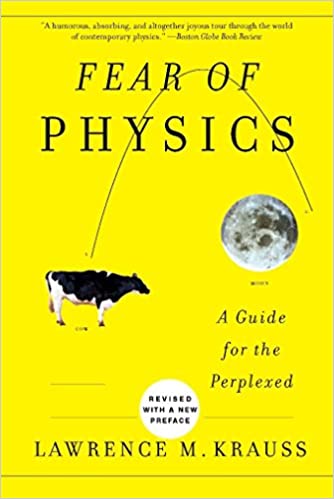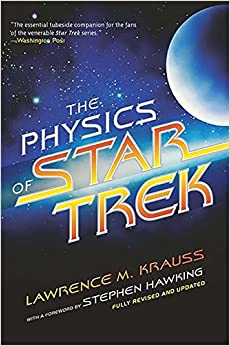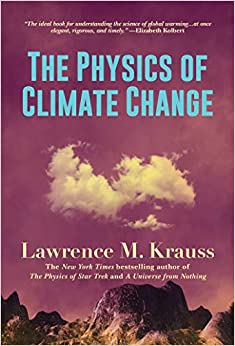Background
Lawrence Maxwell Krauss was born on May 27, 1954, in New York, United States, but spent his early years in Toronto.


2016
189 Yonge St, Toronto, ON M5B 1M4, Canada
Physicist Lawrence Krauss attends the premiere of the movie Salt and Fire during the 41st Toronto International Film Festival, TIFF, at Elgin Theatre in Toronto, Canada, on September 15, 2016. (Photo by Hubert Boesl/picture alliance)
2005
Park City, Utah, United States
Lawrence Krauss during the 2005 Sundance Film Festival - "The Poets of Progress and Doom" Premiere at Yarrow in Park City, Utah, United States. (Photo by J. Countess/WireImage)
2012
New York, United States
Physicist Lawrence Krauss attends a memorial for Christopher Hitchens at NYU Cooper Union Great Hall on April 20, 2012, in New York City. (Photo by John Lamparski)
2016
189 Yonge St, Toronto, ON M5B 1M4, Canada
Physicist Lawrence Krauss attends the premiere of the movie Salt and Fire during the 41st Toronto International Film Festival, TIFF, at Elgin Theatre in Toronto, Canada, on September 15, 2016. (Photo by Hubert Boesl/picture alliance)
2016
189 Yonge St, Toronto, ON M5B 1M4, Canada
Lawrence Krauss attends the "Salt and Fire" premiere during the 2016 Toronto International Film Festival at The Elgin on September 15, 2016, in Toronto, Canada. (Photo by Brian de Rivera Simon/WireImage)
2016
189 Yonge St, Toronto, ON M5B 1M4, Canada
Lawrence Krauss attends the "Salt and Fire" premiere during the 2016 Toronto International Film Festival at The Elgin on September 15, 2016, in Toronto, Canada. (Photo by Brian de Rivera Simon/WireImage)
1125 Colonel By Dr, Ottawa, ON K1S 5B6, Canada
In 1977, Lawrence Krauss received undergraduate degrees in mathematics and physics with first-class honors at Carleton University in Ottawa.
77 Massachusetts Ave, Cambridge, MA 02139, United States
In 1982, Lawrence Krauss was awarded a doctoral degree in physics at the Massachusetts Institute of Technology.











("Assume the cow is a sphere." So begins this lively, irre...)
"Assume the cow is a sphere." So begins this lively, irreverent, and informative look at everything from the physics of boiling water to cutting-edge research at the observable limits of the universe. Rich with anecdotes and accessible examples, Fear of Physics nimbly ranges over the tools and thought behind the world of modern physics, taking the mystery out of what is essentially a very human intellectual endeavor.
https://www.amazon.com/Fear-Physics-Perplexed-Lawrence-Krauss-ebook/dp/B007C2DGYQ/ref=sr_1_4?dchild=1&keywords=Lawrence+Krauss&qid=1600953237&sr=8-4
1993

(Lawrence M. Krauss boldly goes where Star Trek has gone-a...)
Lawrence M. Krauss boldly goes where Star Trek has gone-and beyond. From Newton to Hawking, from Einstein to Feynman, from Kirk to Picard, Krauss leads readers on a voyage to the world of physics as we now know it and as it might one day be.
https://www.amazon.com/Physics-Star-Trek-Lawrence-Krauss/dp/0465002048/ref=sr_1_8?dchild=1&keywords=Lawrence+Krauss&qid=1600953237&sr=8-8
1995

(Lawrence Krauss offers a paradigm-shifting view of how ev...)
Lawrence Krauss offers a paradigm-shifting view of how everything that exists came to be in the first place. "Where did the universe come from? What was there before it? What will the future bring? And finally, why is there something rather than nothing?" One of the few prominent scientists today to have crossed the chasm between science and popular culture, Krauss describes the staggeringly beautiful experimental observations and mind-bending new theories that demonstrate not only can something arise from nothing, something will always arise from nothing. With a new preface about the significance of the discovery of the Higgs particle, A Universe from Nothing uses Krauss's characteristic wry humor and wonderfully clear explanations to take us back to the beginning of the beginning, presenting the most recent evidence for how our universe evolved - and the implications for how it’s going to end. Provocative, challenging, and delightfully readable, this is a game-changing look at the most basic underpinning of existence and a powerful antidote to outmoded philosophical, religious, and scientific thinking.
https://www.amazon.com/Universe-Nothing-There-Something-Rather/dp/1451624468/ref=sr_1_1?dchild=1&keywords=Lawrence+Krauss&qid=1600953213&sr=8-1
2012

(A passionate advocate for reason, Krauss gives the ration...)
A passionate advocate for reason, Krauss gives the rationale for the seemingly irrational - and the mysteries and apparent contradictions of quantum physics, and explores what that means for our lives here on Earth - and beyond. At its core, The Greatest Story Ever Told - So Far is about the best of what it means to be human - an epic history of our ultimately purposeless universe that addresses the question, "Why are we here?"
https://www.amazon.com/Greatest-Story-Ever-Told-Here/dp/B06X1BHG1W/ref=sr_1_2?dchild=1&keywords=Lawrence+Krauss&qid=1600953213&sr=8-2
2017

(The first book to briefly and clearly present the science...)
The first book to briefly and clearly present the science of climate change in a way that is accessible to laypeople, providing the perspective needed to understand and assess the foundations and predictions of climate change.
https://www.amazon.com/Physics-Climate-Change-Lawrence-Krauss/dp/1642938165/ref=sr_1_3?dchild=1&keywords=Lawrence+Krauss&qid=1600953213&sr=8-3
2021
cosmologist Theoretical physicist author
Lawrence Maxwell Krauss was born on May 27, 1954, in New York, United States, but spent his early years in Toronto.
In 1977, Lawrence Krauss got undergraduate degrees in mathematics and physics with first-class honors at Carleton University in Ottawa.
In 1982, he was awarded a doctoral degree in physics at the Massachusetts Institute of Technology.
Krauss joined the faculty of the departments of Physics and Astronomy at Yale University as an assistant professor in 1985, and became an associate professor in 1988. In 1993 he was named the Ambrose Swasey Professor of Physics, Professor of Astronomy, and Chairman of the department of physics at Case Western Reserve University. He served in the latter position for 12 years, until 2005. During this period he built up the department, which was ranked among the top 20 Physics Graduate Research Programs in the country in a 2005 national ranking. Among the major new initiatives he spearheaded are included the creation of one of the top particle astrophysics experimental and theoretical programs in the United States and the creation of a groundbreaking Masters Program in Physics Entrepreneurship. In 2002, he was named Director of the Center for Education and Research in Cosmology and Astrophysics at Case.
In August 2008 Krauss took up his new post as Foundation Professor in the School of Earth and Space Exploration and Physics Department, and Inaugural Director of the Origins Initiative at Arizona State University. As planned, Origins will become a national center for research and outreach on origins issues, from the origins of the universe, to human origins, to the origins of consciousness and culture. It will also form a cross-cutting educational theme at ASU.
Krauss is the author of over 250 scientific publications, as well as numerous popular articles on physics and astronomy. He is the recipient of numerous awards for his research and writing, including the Gravity Research Foundation First Prize Award (1984), and the Presidential Investigator Award (1986). In February 2000, in Washington D.C., Krauss was awarded the American Association for the Advancement of Science's 1999-2000 Award for the Public Understanding of Science and Technology. Previous awardees include Carl Sagan (1995) and E.O. Wilson (1994). In 2001 he was awarded the Julius Edgar Lilienfeld Prize of the American Physical Society. The citation reads "For outstanding contributions to the understanding of the early universe, and extraordinary achievement in communicating the essence of physical science to the general public." Previous awardees include Stephen W. Hawking (1999), and Kip S. Thorne (1996). In 2001 the American Institute of Physics awarded Krauss the Andrew Gemant Award, given annually to "a person who has made significant contributions to the cultural, artistic, or humanistic dimensions of physics." Previous awardees include Freeman Dyson, Steven Weinberg, and Stephen Hawking. He was also awarded the American Institute of Physics Science Writing Award in 2002 for his book "Atom." In August of 2003, it was announced that Krauss had been awarded the Oersted Medal, the highest award of the American Association of Physics Teachers, for his contributions to the teaching of physics. Previous awardees include Richard Feynman, I.I. Rabi, Edward Purcell, and Hans Bethe. With this award, he becomes the first physicist to have been awarded these three most prestigious awards from the APS, the AIP, and the AAPT. In 2005 he was also awarded the Joseph P. Burton Forum Award from the American Physical Society for his work on issues of science and society.
Krauss has been elected a Fellow of the American Physical Society and of the American Association for the Advancement of Science, and in June 2003 was awarded an honorary Doctor of Science degree from Carleton University in recognition of his scientific contributions, and his efforts at public understanding of science.
Krauss is an acclaimed teacher and lecturer with vast experience in reaching out to popular audiences. He was named a Sigma-Xi national lecturer in 1990 and an American Physical Society Centennial Lecturer in 1998. University named Lectureships he has held include the Nesbitt Lectureship at Carleton University, the Glover Lectureship at Dickenson College, the Chesley Lectureship at Carleton College, the Herzfeld Lectureship at Catholic University, the Hendrik de Waard Lecture at the University of Groningen, the Kallen Lectureship in Lund Sweden, the Lawrence Centenary Lectureship at Berkeley, the Milton Freshman Lectureship at Syracuse, the Chancellor's Lectureship at Vanderbilt, the Hamilton Lectureship at Princeton, and the Terry Lectureship at Yale. In addition, he has lectured to popular audiences at such places as the Smithsonian Air and Space Museum, the National Museum of Natural History, and the Museum of Natural History in New York and appears frequently on radio and television around the world, as well as being a regular contributor to various newspapers and magazines including the New York Times. He has also lectured to both high school and elementary school students and their teachers as well as teaching courses at all university levels. He also works with various science museums and has served on advisory boards and boards of trustees of the Great Lakes Science Center, the Cleveland Museum of Natural History, and the newly created Science Fiction Experience in Seattle.
Lawrence Krauss is the director of the Origins Project at Arizona State University and Foundation Professor at ASU's School of Earth and Space Exploration and Physics Department. He has written more than 300 scientific publications and 10 popular books, including the international bestsellers The Physics of Star Trek (2007) and A Universe from Nothing (2013). He writes regularly for magazines and newspapers, including the New York Times and The New Yorker, and frequently appears on radio and television; he has also appeared in several feature films. He has received several awards including the Andrew Gemant Award, Lilienfeld Prize, Science Writing Award, and Oersted Medal.
(A passionate advocate for reason, Krauss gives the ration...)
2017(The first book to briefly and clearly present the science...)
2021(Lawrence Krauss offers a paradigm-shifting view of how ev...)
2012("Assume the cow is a sphere." So begins this lively, irre...)
1993(Lawrence M. Krauss boldly goes where Star Trek has gone-a...)
1995Lawrence Krauss was raised in a Jewish but not religious household.
His piece in the New York Times followed by a public letter to Pope Benedict helped to prompt a reevaluation of the Catholic Church's position on evolution.
Krauss has been involved for some time in issues of science and society and has helped spearhead national efforts to educate the public about science, ensure sound public policy, and defend science against attacks at a variety of levels.
His piece in the New York Times followed by a public letter to Pope Benedict helped to prompt a reevaluation of the Catholic Church's position on evolution. He led the creation of an organization in Ohio which recruited and supported pro-science candidates to run for State School Board against creationist candidates, and spoke out and wrote extensively during the election campaign. All candidates recruited by this group, Help Ohio Public Education, were elected, sometimes defeated candidates who outspent them by huge margins.
In Dec 2007, he wrote in the Wall St. Journal proposing a Presidential Debate on Science, and serves on the steering committee of ScienceDebate2008. Their call for such a debate has now been co-sponsored by the American Assoc. for the Advancement of Science and the Council on Competitiveness, as well as being endorsed by 20 Nobel Laureates, various Congresspeople, business leaders, and 12,000 scientists.
In March 2008, Krauss and Richard Dawkins engaged in a public conversation at Stanford University on science and science education, and the video of their conversation has become one of most watched on Youtube since it appeared in April.
In his studies, Krauss became interested in the interface between particle physics and basic cosmology, particularly during the first epoch of the universe after its inception.
Apart from his huge bodies of work in cosmology, particle physics, and theoretical physics, Krauss has been a huge proponent of man-made climate change and an even larger opponent of string theory, which aims to eloquently tie together gravity and quantum mechanics. To Krauss, this is a nightmare. Mainly because it is nearly impossible to prove, as many aspects cannot be tested or verified.
Another controversial theory he put forth recently is that the act of observing the nature of dark matter and dark energy may play a yet-to-be-determined role in shortening the lifespan of the universe.
Krauss was also one of the very first physicists who put forth the theory that most of the mass and energy of the universe likely resides in "empty" space between galaxies - now known to not be empty at all. Instead, it's filled with a soupy mixture of subatomic particles, virtual particles that pop in and out of existence at alarming frequencies, quantum fields (like the Higgs-field that plays a role in distributing mass to certain particles), and of course the mysterious dark energy that is driving the expansion of the universe.
Krauss has an outspoken, logical, no-nonsense personality with a quirky, witty sense of humor.
Krauss' thirty-two-year marriage to Katherine Kelly ended in 2012. The couple has one child.
In 2014, he married Nancy Dahl.
